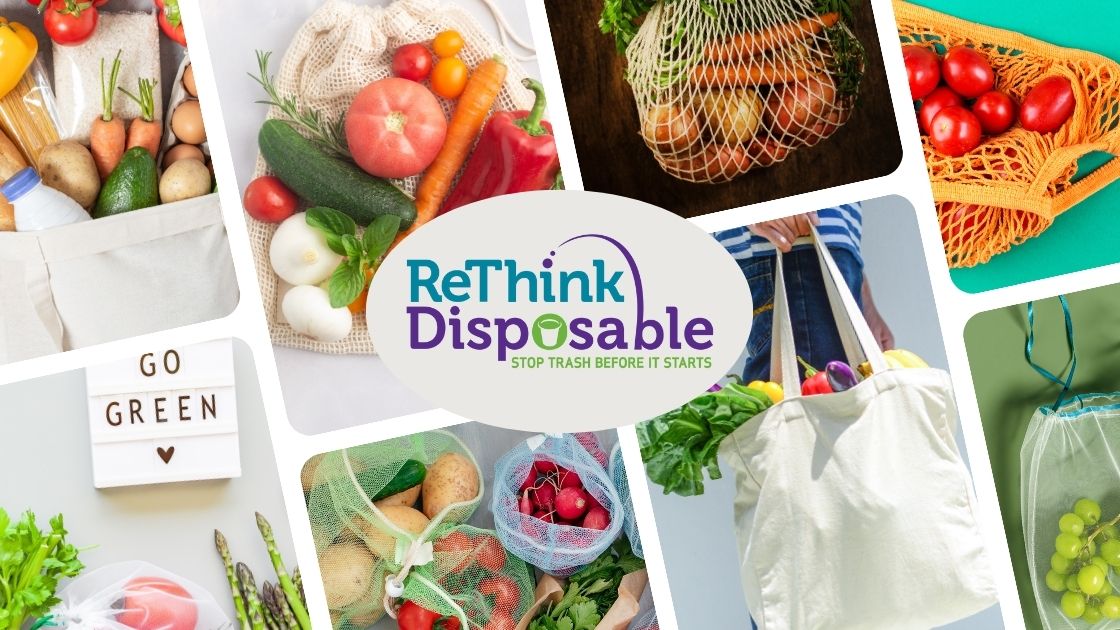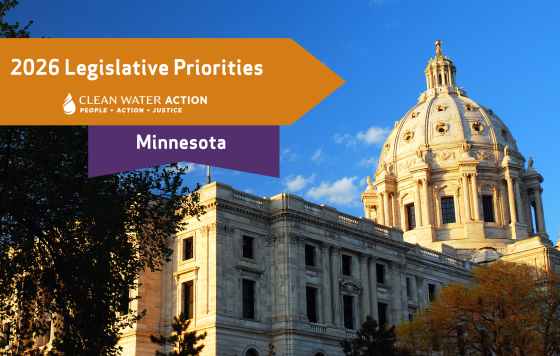
On Thursday, May 30, 2024, Clean Water Action submitted official comments to the NJ Department of Environmental Protection (NJDEP) for regulatory amendments they are proposing to what is referred to as the New Jersey Single Use Waste Reduction Act, or N.J.A.C. 7:26L.
Clean Water Action strongly supports reducing single-use plastics and worked hard to get this successful law passed. The plastics industry, though, recently tried to ignore the scientific data and mislead the public into thinking somehow more plastic has been generated when in reality they are just upset about lost revenue. The Freedonia Group study was found to be falsified and contracted by the plastics industry.
Plastic toxins create health hazards from production, transportation, use and disposal and due to the implementation of this Act, New Jersey has reduced toxins from our Garden State. According to the New Jersey Food Council, in the first 8 months of the law, in May 2022, there were 5.5 billion single-use plastic bags and 110 million single-use paper bags eliminated from entering the waste stream and environment. It’s now been just over 2 years since the bag ban went into effect so it can be extrapolated that over 16 billion bags have now been eliminated from the waste stream.
Clean Water Action commends the work being done to ensure the Act’s success. It is imperative, though, to prevent loopholes that enable the plastics industry to continue to pollute our health and environment unnecessarily.
The current success of the Single Use Plastic Reduction Act is testimony to people’s ability to adjust and learn. We should not lower our expectations of New Jerseyans and continue to move forward in reducing waste and switching to reusables when applicable.
Clean Water Action would like to commend the NJDEP's proposed clarifications and closing of loopholes in the definitions section. But there are proposals that we strongly do not support.
Please see our comments immediately below where Clean Water Action agrees or commends the proposed amendments:
- We agree that the definition of “carryout bags” needs to be clarified to prevent loopholes. Bags that are solely used to contain or wrap uncooked meat, fish or poultry should have an extension until a more readily available product exists but not be permanently exempt. We agree that a bag used to contain a rotisserie chicken should be given an extension much like bags used to contain or wrap uncooked meat. This is also the case for newspapers.
- We recommend that dry cleaning, laundry or garments and prescription drugs provided by a pharmacy could use another product other than single use plastic. Paper, for instance, is already used for prescriptions and dry cleaning could use an alternative product other than plastic. Dry cleaners annually in the US use more than 300 million pounds of plastic film, sometimes known as poly bags. This toxic and unnecessary use of polyethylene ends up in our waterways, land, and air furthering unnecessary health hazards. It needs to be reduced.
- We agree that temperature regulated bags should be viewed as reusable bags.
- We commend the definition clarification of ‘food service business” to include both school cafeterias and businesses that provide food services to government entities, but private schools, preschools and universities should be included in this definition.
- We strongly commend the definition clarification of “plastic” to include materials certified pursuant to the ASTM D6400 pertaining to compostable plastics. We also strongly commend the prohibition of bioplastics. Bioplastic and compostable plastic are greenwashing and creates loopholes for the plastic industry. Compostable and bioplastic products are often at least as toxic for the environment as traditional plastics from production, use to disposal.
The following comments indicate where Clean Water Action does NOT support the proposed changes:
- We strongly do not support the extension of polystyrene for use in any food related process such as for “meat and fish trays for raw or butchered meat, including poultry or fish that is sold from refrigerator or similar retail appliance; and any food product pre-packaged by the manufacturer with a polystyrene foam food service product.” Furthermore, the exemption of additional polystyrene foam food service products at the Department’s discretion is not supported. Polystyrene was banned by the law for a reason. According to both US Environmental Protection Agency and National Institute of Health, amongst others, styrene has been associated with a number of health risks including negative effects on the nervous system, hormones and cause of liver and nerve tissue damage. For instance, between 1990 and 2017, thyroid cancer increased 90%. When the chemicals come into contact with the food that rests on it, like with the use of polystyrene trays, toxins leach into the foods we eat. There are other options than traditional plastic or polystyrene for use on meat trays. For instance, although polylactic acid, often referred to as PLA, is not an ideal material it is far better than polystyrene as it is often made of corn.
- Clean Water Action does not support exemptions for small loose products. Much like single use bags used for grocery products, single use disposable bags are not needed to package loose items such as fruits, vegetables, nuts, coffee, grains, bread, candy, flowers, or small hardware items. Greeting cards can be placed directly in their envelope and do not need a separate bag. All these items could use a reusable product that customers provide, as they do for their groceries. Many people are already doing this.
- We oppose ultrasonic stitching in the proposed definition of approved reusable bags. Ultrasonic stitching has become a technique used by the plastic industry to further promote single-use plastic bags. While it is not mentioned in the Proposal, we also do not support heat stitching. These bags, handles more specifically, tend to rip part more easily and therefore are not able to withstand continual reuse as defined by the law.
- We do not support restaurant exemptions and we want to ensure the language throughout the Act includes small venders like food trucks which are prevalent along the Jersey Shore, farmers markets and numerous city streets. Restaurants, and all retail establishments, should be viewed the same as a grocery store. Customers have proven they can provide their own reusable bag for grocery stores and can do the same for take-out from restaurants and other retail establishments. Since 2014, online food ordering has increased 300% faster than dine-in, furthering plastic pollution.
Clean Water Action appreciates the opportunity to submit comments to the proposed regulatory amendments to N.J.A.C. 7:26L to ensure it fully supports the intent of the Single Use Plastic Reduction Act. It is critical to prevent toxins from negatively affecting our health and environment.
Over the past two years, the Act has been a huge success story in reducing the amount of unnecessary waste and plastic toxins going into the waste stream and streets in the Garden State. While at first some people may have had to learn a new process of bringing their reusable bags to the stores, it did not take the public very long to catch on. We must keep the Single Use Plastic Reduction Act true to its purpose of reducing unnecessary toxins and keeping our Garden State safer, healthier, and cleaner.
If you have any questions or if you would like to discuss the content of this memo, please contact Marta Young, Clean Water Action Zero Waste Specialist.


